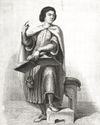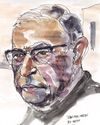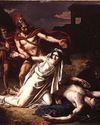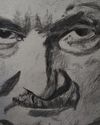
Among the many eulogies of Plato (real name Aristocles, 427-347 BC), it has become a common trend to reference A.N. Whitehead’s famous quote that a “general characterisation of the European philosophical tradition is that it consists of a series of footnotes to Plato.” However, one need only to look to Whitehead’s student and collaborator Bertrand Russell to sour that grandeur. Russell treated the Athenian “with as little reverence as if he were a contemporary English or American advocate of totalitarianism” (A History of Western Philosophy, 1945).
This discrepancy of interpretations presents a problem to the modern reader. Plato’s presence will forever loom large in every philosophy department, but who was this man who inspires equal admiration and controversy, and what can we practically take from his life into our lives? For the answers, we will briefly delve into Plato’s education, his epistemology, and his political idealism, to reveal a body of ideas that involves stripping back the world of the senses and focusing instead on life’s pure moral essentials.
Portrait of an Illusive Dramatist
Of his early life we know few facts: his nickname ‘Plato’ was gained when he was a professional wrestler, due to his broad shoulders (‘Platon’ translates as ‘broad’). In his youth he pursued a career in either politics or poetry. The latter he is said to have discarded upon meeting Socrates in the 410s BC.
This story is from the February/March 2021 edition of Philosophy Now.
Start your 7-day Magzter GOLD free trial to access thousands of curated premium stories, and 9,000+ magazines and newspapers.
Already a subscriber ? Sign In
This story is from the February/March 2021 edition of Philosophy Now.
Start your 7-day Magzter GOLD free trial to access thousands of curated premium stories, and 9,000+ magazines and newspapers.
Already a subscriber? Sign In

The Two Dennises
Hannah Mortimer observes a close encounter of the same kind.

Heraclitus (c.500 BC)
Harry Keith lets flow a stream of ideas about permanence and change.

Does the Cosmos Have a Purpose?
Raymond Tallis argues intently against universal intention.

Is Driving Fossil-Fuelled Cars Immoral?
Rufus Duits asks when we can justify driving our carbon contributors.

Abelard & Carneades Yes & No
Frank Breslin says 'yes and no' to presenting both sides of an argument.

Frankl & Sartre in Search of Meaning
Georgia Arkell compares logotherapy and atheistic existentialism.

Luce Irigaray
Luce Irigaray, now ninety-two years old, was, among many other things, one of the most impactful feminists of the 1970s liberation movements - before she was marginalised, then ostracised, from the francophone intellectual sphere.

Significance
Ruben David Azevedo tells us why, in a limitless universe, we’re not insignificant.

The Present Is Not All There Is To Happiness
Rob Glacier says don’t just live in the now.

Philosophers Exploring The Good Life
Jim Mepham quests with philosophers to discover what makes a life good.